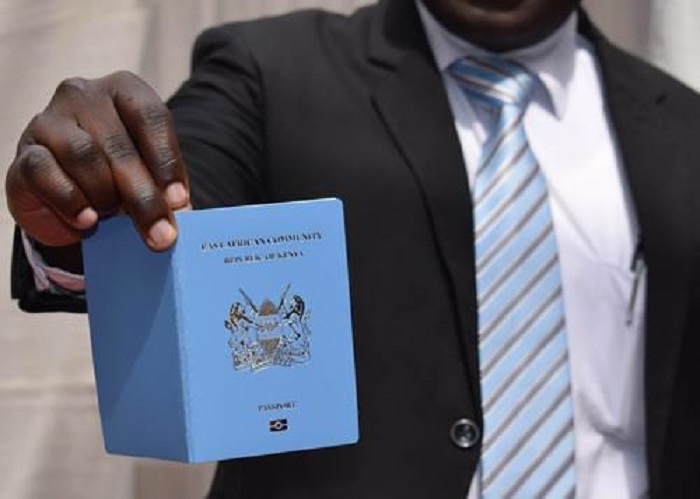Kenyans without the new East African Community (EAC) biometric e-passport will from Saturday travel to the 26 Schengen Member States as they will not be issued with entry visas.
In a circular issued by various diplomatic missions in Nairobi and the European External Action Service, the move was taken following notification from the government that all Kenyan passports except the new biometric passports will be rendered invalid from September 1.
“According to Article 12 (a) of the Regulation (EC) No. 810/2009, commonly known as “Visa Code”, the validity of a travel document shall extend at least three months after the intended date of departure from the territory of the Schengen Member States. According to an official notification from the Kenyan authorities issued to all diplomatic missions, all Kenyan passports – except the new East African Community biometric e-Passport – will be rendered invalid from 1 September 2019,” reads the notice.
“The Schengen Member States therefore wish to inform the Kenyan public that from 1 June 2019 ONLY the new East African Community biometric e-Passport can be accepted for Schengen visa applications,” it adds.
Current Schengen members are 22 EU countries and four non-EU countries.
They Austria, Belgium, Czech Republic, Denmark, Estonia, Finland, France, Germany, Greece, Hungary, Italy, Latvia, Lithuania, Luxembourg, Malta, Netherlands, Poland, Portugal, Slovakia, Slovenia, Spain and Sweden.
Non-EU Schengen members are Iceland, Liechtenstein, Norway and Switzerland.
According to the government, the new e-passports have more security features than the previous machine-read ones.
The United States had also said that those who do not have the new e-passports will not be issued with visas since they are supposed to last for six months but later went back on the directive.
“Visa applicants may apply for a US visa with a non-digital Kenyan passport. We will place a US visa in a non-digital passport until further notice. Holders of current US visas do not need to take any action,” it tweeted on May 1.
Head of Public Service Joseph Kinyua last year warned civil servants that those without the new passports will not be cleared to travel abroad from September 1.
Read: Omtatah bid to block KRA succession front runner flops
“Where a public servant does not have an e-passport by March 1, 2019, they will be ineligible for clearance until after September 1, 2019,” said Kinyua in a circular.













It’s a timely reminder of the ongoing modernization of travel documentation and the importance of staying up-to-date with international requirements.
The emphasis on e-passports aligning with international standards is particularly noteworthy. As countries adopt more secure and efficient systems, this transition ensures smoother travel experiences while enhancing security and reducing the risk of document fraud.
I appreciated the clear explanation of the affected destinations and the urgency for Kenyan travelers to upgrade their passports. For those planning trips or business engagements abroad, understanding these changes is essential to avoid last-minute disruptions.
The article also underscores the broader benefits of e-passports, such as faster processing at immigration points and compatibility with automated systems in many countries. These advantages highlight how adopting new technologies can improve global mobility for Kenyan citizens.